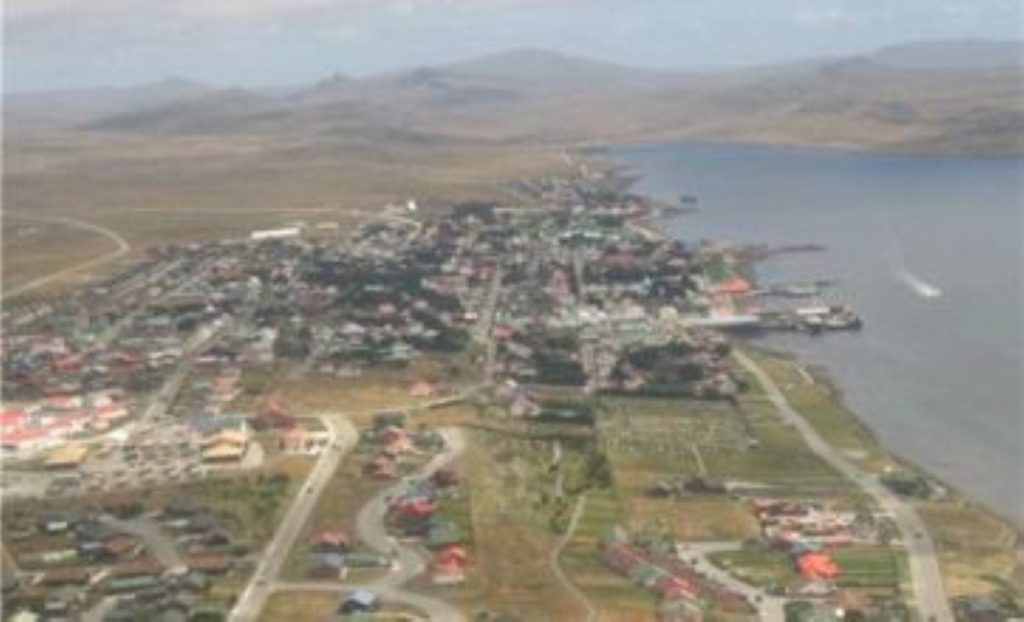Propaganda or diplomacy? Falklands referendum riles Argentina
Falkland Islanders are wrapping up voting today in their two-day referendum on self-determination.
The archipelago's 1,600 voters are not expected to do anything other than choose en masse to remain British, making the move an overt piece of global diplomacy by Britain.
The UK's central defence of its continued claim to sovereignty of the Islands rests on the principle of self-determination.
But the Falklands issue is undermining British diplomatic and business prospects across South America following ongoing hostility from Argentina.


The vote, which will demonstrate Falkland Islanders wish to "retain their current political status as an overseas territory of the United Kingdom", is unlikely to convince Buenos Aires to drop their pressure on the UK.
The referendum ballot paper explains: "Under the Falkland Islands constitution the people of the Falklands Islands have the right to self-determination, which they can exercise at any time."
Argentina's government has dismissed the referendum as a "British attempt to manipulate" the situation. It says the current population has been "implanted" and that its views are therefore irrelevant.
Falklands Islands legislative assembly member Barry Elsby told AFP: "Argentina are totally ignoring us. But the rest of the world will see it for what it is – the democratic view of the people. No matter what Argentina says, the rest of the world will not ignore it."
Argentina has persuaded South American trading bloc Mercosur to bar all ships carrying the Falklands flag. Its efforts mean there is now just one commercial air link between the Islands and the continent.
Britain remains committed to the Falklands after fighting a bitter conflict with Argentina in 1982, however. It is now hoping drilling for oil and gas located under the seabed will boost the Islands' economy.
"Until Argentina is able to persuade the Falkland Islanders to accept some form of Argentine sovereignty over the islands, Argentina's efforts to reclaim them will be an exercise in futility," Mark Jones of Houston-based Rice University told Reuters.

